The Otherwise Award is pleased to announce the selection of three new Fellows. Usually, the Award presents Fellowships to only two emerging creators each year. But because this year has been so difficult for everyone, the Motherboard decided to choose three new Fellows this year. It is a great time to imagine futures that are unlike the world we live in today.
This year’s Fellows are speculative fiction writer Shreya Ila Anasuya, independent filmmaker Eleyna Sara Haroun, and poet FS Hurston.
 Shreya Ila Anasuya writes short fiction set in real and imaginary South Asian cities. In the application, Shreya wrote, “I find that my work repeatedly asks this question – who are women and femme people in their fullest manifestations, and how does their experience of themselves contrast to their culture’s expectations and demands of them?” Her work is informed by lived experience as a queer non-binary femme person from India who lives with chronic illness. Funding from the Fellowship will give Shreya the time needed to work on a collection of historical speculative fiction set in South Asia or South Asia inspired secondary worlds. The Fellowship funding will also make it possible for Shreya to take classes that will connect her to the greater speculative fiction community, combating the loneliness of being “a writer of strange fiction in Calcutta during a global pandemic.”
Shreya Ila Anasuya writes short fiction set in real and imaginary South Asian cities. In the application, Shreya wrote, “I find that my work repeatedly asks this question – who are women and femme people in their fullest manifestations, and how does their experience of themselves contrast to their culture’s expectations and demands of them?” Her work is informed by lived experience as a queer non-binary femme person from India who lives with chronic illness. Funding from the Fellowship will give Shreya the time needed to work on a collection of historical speculative fiction set in South Asia or South Asia inspired secondary worlds. The Fellowship funding will also make it possible for Shreya to take classes that will connect her to the greater speculative fiction community, combating the loneliness of being “a writer of strange fiction in Calcutta during a global pandemic.”
 The work of independent filmmaker Eleyna Sara Haroun has focused on encouraging children to to question, challenge and discuss the effects of issues like minority rights, gender equality, climate change and child abuse on their communities and themselves. Her project “Filmwalli” is a series of five short films, to be produced in both Urdu and English. Each story is a folk tale that challenges traditional narratives of women in Pakistani society. These films/folk tales will encourage children to realize that everyone has the right to live to their full potential. Funding from the Otherwise Fellowship will allow Eleyna to develop two out of the five stories into scripts, complete the research and treatments for the other three scripts, and collaborate with a storyboard artist on these tales. With that work in place, she can submit her work to festivals and writers labs and apply for greater funding to begin the animation production of the films and the development of a campaign built around these films.
The work of independent filmmaker Eleyna Sara Haroun has focused on encouraging children to to question, challenge and discuss the effects of issues like minority rights, gender equality, climate change and child abuse on their communities and themselves. Her project “Filmwalli” is a series of five short films, to be produced in both Urdu and English. Each story is a folk tale that challenges traditional narratives of women in Pakistani society. These films/folk tales will encourage children to realize that everyone has the right to live to their full potential. Funding from the Otherwise Fellowship will allow Eleyna to develop two out of the five stories into scripts, complete the research and treatments for the other three scripts, and collaborate with a storyboard artist on these tales. With that work in place, she can submit her work to festivals and writers labs and apply for greater funding to begin the animation production of the films and the development of a campaign built around these films.
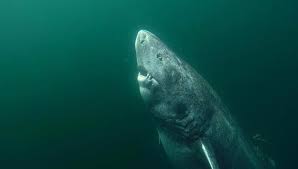 Poet FS Hurston will be working on a novel in verse with a fascinating main character: a teenager in contemporary Dakar who was born with the memories of a 400-year-old shark. Through this connection with a shark, the teenager meets ghosts of the past. FS Hurston writes that each character in the novel will be based on “a queer trans African person from anthropological archives, journals of slaveowners, colonial administrative documents, slave ledgers. The story will explore “the wide and capacious space of what white anthropologists couldn’t or didn’t want to understand of queer Africans,….speculating on what is possible on the other side of the colonizer’s gaze….” The funding from the Fellowship will help cover the cost of travel in Senegal and Cameroun, the two places where most of the novel takes place.
Poet FS Hurston will be working on a novel in verse with a fascinating main character: a teenager in contemporary Dakar who was born with the memories of a 400-year-old shark. Through this connection with a shark, the teenager meets ghosts of the past. FS Hurston writes that each character in the novel will be based on “a queer trans African person from anthropological archives, journals of slaveowners, colonial administrative documents, slave ledgers. The story will explore “the wide and capacious space of what white anthropologists couldn’t or didn’t want to understand of queer Africans,….speculating on what is possible on the other side of the colonizer’s gaze….” The funding from the Fellowship will help cover the cost of travel in Senegal and Cameroun, the two places where most of the novel takes place.
In addition to choosing three Fellows, the Fellowship Committee announced an honors list, which includes Jasmine Moore, Kailee Marie Pedersen, Timea Balogh, and Wren Handman. These writers and artists are all doing exciting work in gender and speculative fiction.
The members of the 2020 selection committee for the Otherwise Fellowships were Martha Riva Palacio Obón, Devonix, Kiini Ibura Salaam, and Betsy Lundsten.
*
The Otherwise Award celebrates works of speculative fiction that imagine new futures by exploring and expanding our understanding of gender. Through the Fellowship program, the Award also encourages those who are striving to complete works, to imagine futures that might have been unimaginable when the Award began. Now in its sixth year, the Fellowship program seeks out new voices in the field, particularly from communities that have been historically underrepresented in science fiction and fantasy and by those who work in media other than traditional fiction.
Each Fellow will receive $500. The work produced as a result of this support will be recognized and promoted by the Otherwise Award.
Over time, the Fellowship program is creating a network of Fellows who can build connections, provide mutual support, and find opportunities for collaboration. This effort complements the ongoing work of the Award — that is, the celebration of speculative fiction that expands and explores gender by imagining otherwise in thought-provoking, nuanced, and unexpected ways.
If you would like to donate to the fund for future Otherwise Fellowships, you can do so here. Let us know if you would like your donation to support the Fellowships program specifically.

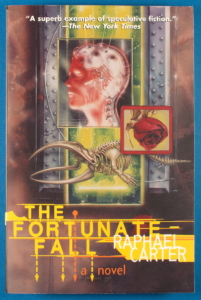
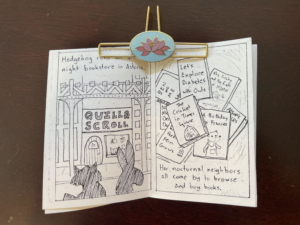
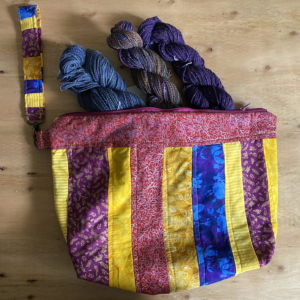
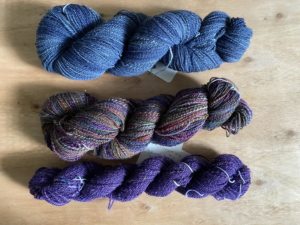
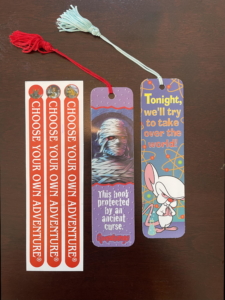
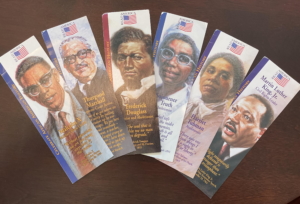
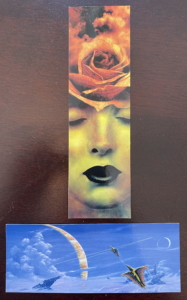


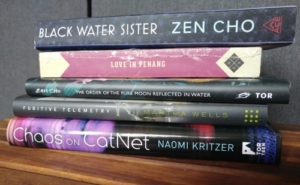
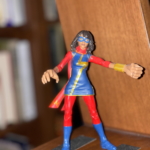
 Shreya Ila Anasuya writes short fiction set in real and imaginary South Asian cities. In the application, Shreya wrote, “I find that my work repeatedly asks this question – who are women and femme people in their fullest manifestations, and how does their experience of themselves contrast to their culture’s expectations and demands of them?” Her work is informed by lived experience as a queer non-binary femme person from India who lives with chronic illness. Funding from the Fellowship will give Shreya the time needed to work on a collection of historical speculative fiction set in South Asia or South Asia inspired secondary worlds. The Fellowship funding will also make it possible for Shreya to take classes that will connect her to the greater speculative fiction community, combating the loneliness of being “a writer of strange fiction in Calcutta during a global pandemic.”
Shreya Ila Anasuya writes short fiction set in real and imaginary South Asian cities. In the application, Shreya wrote, “I find that my work repeatedly asks this question – who are women and femme people in their fullest manifestations, and how does their experience of themselves contrast to their culture’s expectations and demands of them?” Her work is informed by lived experience as a queer non-binary femme person from India who lives with chronic illness. Funding from the Fellowship will give Shreya the time needed to work on a collection of historical speculative fiction set in South Asia or South Asia inspired secondary worlds. The Fellowship funding will also make it possible for Shreya to take classes that will connect her to the greater speculative fiction community, combating the loneliness of being “a writer of strange fiction in Calcutta during a global pandemic.” The work of independent filmmaker Eleyna Sara Haroun has focused on encouraging children to to question, challenge and discuss the effects of issues like minority rights, gender equality, climate change and child abuse on their communities and themselves. Her project “Filmwalli” is a series of five short films, to be produced in both Urdu and English. Each story is a folk tale that challenges traditional narratives of women in Pakistani society. These films/folk tales will encourage children to realize that everyone has the right to live to their full potential. Funding from the Otherwise Fellowship will allow Eleyna to develop two out of the five stories into scripts, complete the research and treatments for the other three scripts, and collaborate with a storyboard artist on these tales. With that work in place, she can submit her work to festivals and writers labs and apply for greater funding to begin the animation production of the films and the development of a campaign built around these films.
The work of independent filmmaker Eleyna Sara Haroun has focused on encouraging children to to question, challenge and discuss the effects of issues like minority rights, gender equality, climate change and child abuse on their communities and themselves. Her project “Filmwalli” is a series of five short films, to be produced in both Urdu and English. Each story is a folk tale that challenges traditional narratives of women in Pakistani society. These films/folk tales will encourage children to realize that everyone has the right to live to their full potential. Funding from the Otherwise Fellowship will allow Eleyna to develop two out of the five stories into scripts, complete the research and treatments for the other three scripts, and collaborate with a storyboard artist on these tales. With that work in place, she can submit her work to festivals and writers labs and apply for greater funding to begin the animation production of the films and the development of a campaign built around these films. Poet FS Hurston will be working on a novel in verse with a fascinating main character: a teenager in contemporary Dakar who was born with the memories of a 400-year-old shark. Through this connection with a shark, the teenager meets ghosts of the past. FS Hurston writes that each character in the novel will be based on “a queer trans African person from anthropological archives, journals of slaveowners, colonial administrative documents, slave ledgers. The story will explore “the wide and capacious space of what white anthropologists couldn’t or didn’t want to understand of queer Africans,….speculating on what is possible on the other side of the colonizer’s gaze….” The funding from the Fellowship will help cover the cost of travel in Senegal and Cameroun, the two places where most of the novel takes place.
Poet FS Hurston will be working on a novel in verse with a fascinating main character: a teenager in contemporary Dakar who was born with the memories of a 400-year-old shark. Through this connection with a shark, the teenager meets ghosts of the past. FS Hurston writes that each character in the novel will be based on “a queer trans African person from anthropological archives, journals of slaveowners, colonial administrative documents, slave ledgers. The story will explore “the wide and capacious space of what white anthropologists couldn’t or didn’t want to understand of queer Africans,….speculating on what is possible on the other side of the colonizer’s gaze….” The funding from the Fellowship will help cover the cost of travel in Senegal and Cameroun, the two places where most of the novel takes place.